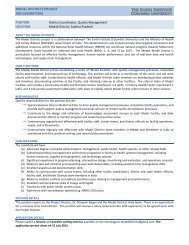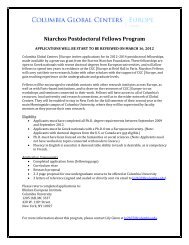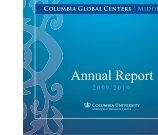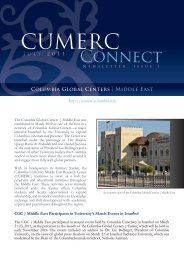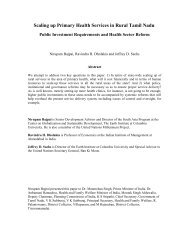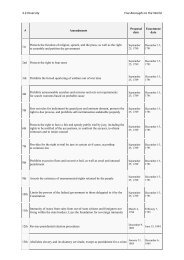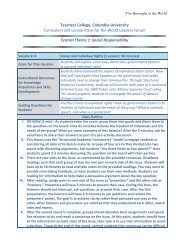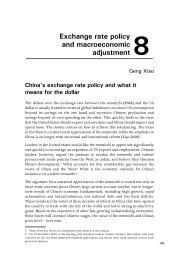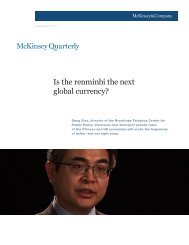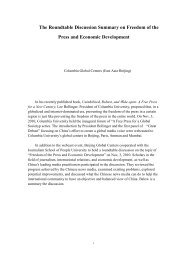Annual Report 2010 | 2011 - Columbia Global Centers
Annual Report 2010 | 2011 - Columbia Global Centers
Annual Report 2010 | 2011 - Columbia Global Centers
Create successful ePaper yourself
Turn your PDF publications into a flip-book with our unique Google optimized e-Paper software.
Outreach<br />
International Education Events and Speaking Engagements<br />
The Center seeks to raise awareness about the <strong>Global</strong> <strong>Centers</strong> model and about projects underway in Amman by<br />
participating in development and education-related events in the region and internationally. Professor Safwan Masri<br />
has been invited to speak and participate in numerous conferences and forums during the academic year.<br />
Highlights include:<br />
• Middle East Leadership Academy Workshop (Dead Sea – March 16, <strong>2011</strong>)<br />
• <strong>2011</strong> U.S.-Islamic World Forum, session on “Higher Education Reform in the Arab World” (Washington<br />
D.C. – April 12-14, <strong>2011</strong>)<br />
• Abraaj Capital Forum, panel session on “What needs to change in the Arab World? How do we do it?”<br />
(Istanbul – September 15-16, <strong>2011</strong>)<br />
• World Economic Forum Special Meeting on Economic Growth and Job Creation in the Arab World,<br />
panel session on “Tackling the Risk of Water Scarcity” (Dead Sea – October 22, <strong>2011</strong>)<br />
Director Co-Convenes Session on Higher Education Reform<br />
in the Arab World at <strong>2011</strong> U.S.-Islamic World Forum<br />
The Center’s Director, Professor Safwan Masri, was invited to participate in and co-convene a<br />
session on “Higher Education Reform in the Arab World” at the <strong>2011</strong> U.S.-Islamic World Forum<br />
held in Washington D.C. on April 12-14, <strong>2011</strong>. The working group brought together educators,<br />
specialists and public sector officials from the U.S. and the Middle East to review the current state<br />
of higher education in the Arab World, consider best practices, and discuss specific measures and<br />
areas of collaboration that will advance the ability of educational institutions to meet the many<br />
challenges before them.<br />
The working group focused on addressing questions such as: How are different actors in the diverse<br />
landscape of Arab higher education today advancing or impeding the goals of reform? To what<br />
degree do regional partnerships and cooperation offer opportunities to overcome local obstacles<br />
in specific areas? And, where has important progress been made and what policy responses and<br />
initiatives should be encouraged to improve the ability of Arab educational institutions to meet<br />
the challenges of this transformational period?<br />
The main topics for discussion focused on three components. First, governance and accountability,<br />
which considered experiences to date and the obstacles to further progress in expanding governance<br />
and accountability objectives for higher education in the Arab region. Second, quality of teaching<br />
and learning including the experience to date with public, private, for profit, branch institutions, and<br />
foreign partnerships in the region, their impact on equity and the ability to achieve high standards<br />
of teaching and learning. Finally, linkages between educational outcomes and labor markets, which<br />
tackled what steps can be taken in the short and medium term to better align policy development<br />
in the area of higher education with investment in programs that promote better labor market and<br />
societal outcomes.<br />
55



